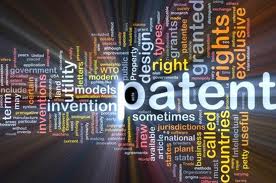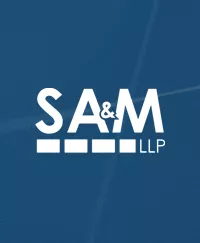Important Business News
from
Stubbs Alderton & Markiles, LLP
New U.S. Patent Law Awarding Patents on a First-to-File Basis Goes into Effect
What Every Entrepreneur Needs to Know to Turn the
New Law into a Business Advantage
 On March 15, 2013, U.S. patent law will change favoring inventors who first file a patent application over earlier inventors of the same invention who file a patent application later. This is a part of the patent law reform enacted in 2011. With this change, entrepreneurs will need to change the way they think about obtaining patent protection for their inventions. Here are some suggested business practices for adapting to the new law:
On March 15, 2013, U.S. patent law will change favoring inventors who first file a patent application over earlier inventors of the same invention who file a patent application later. This is a part of the patent law reform enacted in 2011. With this change, entrepreneurs will need to change the way they think about obtaining patent protection for their inventions. Here are some suggested business practices for adapting to the new law:
- Make faster decisions about filing patent applications. Inventors can no longer rely upon being the first to invent and take a wait and see approach in deciding whether to file a patent application. Companies in the business of continuous innovation should adopt procedures for identifying patentable inventions and quickly assessing the value of obtaining patent protection. Filing a patent application establishes an inventor’s priority over other patent applications for the same invention with a later filing date.
- Decide whether or not to pursue patent protection before publicly disclosing the invention. The new patent law does not change the 1-year grace period for filing a patent application after first selling, publicly using or publishing a description of an invention. But, this grace period applies only to U.S. patents. To qualify for patent protection outside the U.S., inventors must file a patent application before disclosing, using or selling products or services incorporating their inventions. Companies need to make patent filing decisions before taking actions that render their inventions ineligible for patent protection abroad.
- Ensure employees and developers do not use other peoples’ ideas. A patent, even if the application from which it issued was filed first, can be invalidated if the invention was stolen or derived from someone else. Employees and contractors tasked with innovating should be advised not to use inventions developed by anyone outside the company without written authorization of the invention’s owner. Deriving inventions from others is common in joint development projects, but doing so puts at risk a company’s investment in obtaining patent protection for these inventions.
- Keep careful records of commercial use of technology. Commercial use of patented technology at least one year prior to the date the patent was filed is a defense to infringement of that patent. This defense, although not new, may now be applied to a broader array of patented technologies. Companies should collect evidence of research activities and of the conception, design, development, testing and commercialization of technology it uses. Photographs, technical specifications, documentation, emails, operating procedures, invoices, receipts, order forms, canceled checks, samples and test results may be valuable evidence in establishing a company’s prior use of patented technology to defend a future patent infringement lawsuit.
Companies should consult experienced intellectual property counsel to ensure their patent protection policies are up to date with the recent changes in U.S. patent laws.
How Stubbs Alderton & Markiles, LLP can help. We are a business law firm with particular expertise in intellectual property law. Our attorneys have extensive experience in developing intellectual property protection strategies to enable businesses to maximize the value of their inventions. We inform our clients how to best update their IP strategies, patent filing procedures and invention assignment agreements and how to use today’s U.S. patent laws to their competitive advantage.
Kevin D. DeBré leads the firm’s Intellectual Property and Technology Transactions Practice Group advising entrepreneurs and companies on how to use technology and intellectual property in building successful businesses. Kevin is a registered patent attorney and has over 20 years of experience in structuring and negotiating intellectual property-driven deals.
For more information, contact Kevin at (818) 444-4521 or .
